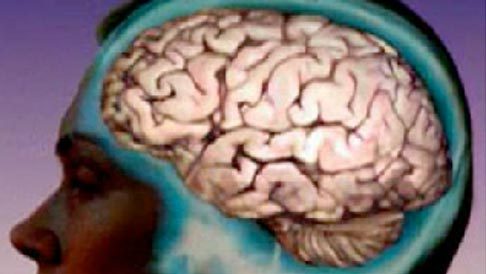Antidepressants Could Help Heal Brain After Injury

While antidepressants are often prescribed after a traumatic brain injury to help patients deal with the emotional fallout from their ordeal, new research suggests these medications could also help the brain itself heal.
A new study found that antidepressants can help brain cells grow and survive after brain trauma, and can even lead to improved memory and brain function.
Injured mice given the antidepressant imipramine (known commercially as Tofranil) had 70 percent more brain cells after four weeks than mice not treated with antidepressants, said study researcher Dr. Jason Huang, an associate professor of neurosurgery at the University of Rochester Medical Center and chief of neurosurgery at Highland Hospital in New York.
The mice treated with antidepressants also showed, through behavioral tests, improved memory skills, Huang said.
The finding is especially important because as many as half of patients who suffer from traumatic brain injury also have depression, and therefore take antidepressant medications, Huang said. The study suggests the antidepressants could provide a benefit beyond just treating depression — they could also help the brain heal.
"What we propose in this study is that if you give [the drugs] right after the injury, in addition to the other treatments the patient is getting, we think additionally it could improve their cognitive function," Huang told MyHealthNewsDaily.
The study was published online this month in the Journal of Neurotrauma.
Sign up for the Live Science daily newsletter now
Get the world’s most fascinating discoveries delivered straight to your inbox.
Behavioral and biological differences
Huang and his colleagues induced traumatic brain injuries in mice. Afterward, they gave some of the mice antidepressants, and found that these mice had a 70 percent increase in growth of brain cells, called neurons, in the hippocampus (the part of the brain responsible for memory).
The mice also exhibited behavioral differences that indicated an improvement in memory, Huang said. Researchers put the mice through a novel object recognition test, where scientists record the amount of time mice take to size up new objects. The longer mice gazed at a new object, the better their memory, scientists assumed, because it means that the mice remembered objects they'd previously encountered and recognized the new object as novel.
The mice given the antidepressants spent about 15 percent more time exploring new objects compared with mice that weren't given the medications, the study found.
However, the antidepressants didn't seem to improve the animals' mobility and motor functions, Huang said, which mirrors what is typically observed in traumatic brain injury survivors who take antidepressants.
Stimulating cell growth
Though more studies are needed to prove the connection, antidepressants likely help improve brain function by stimulating growth of new brain cells from stem cells, and by helping existing brain cells survive, Huang said.
"Our data is not strong enough to prove both, but we think the possibility exists that both [methods] play a role," he said. "I think we definitely have enhanced the number of brain cells, or neurons, and also preserved and prevented them from dying."
The study also shows that brain cells are able to migrate to the parts of the brain that need them the most, which explains why the most brain cell growth was observed in the hippocampus, Huang said.
Past research has shown that antidepressants can spur generation of brain cells in healthy animals. For those with traumatic brain injury, antidepressants may not be able to restore memory to pre-injury levels in patients, but they can at least improve memory to a level that is higher than if they didn’t take antidepressants, Huang said.
"For more severe [brain injury], it's hard to get to 100 percent normal," he said.
Huang said more research is needed in humans before the Food and Drug Administration will approve antidepressants for uses beyond combating depression, but because the drug is already approved to treat depression, the time frame for approval may be shorter than usual.
"A complete new drug may take 10 years from bench work to clinical trial" to be approved, Huang said. "But for an already FDA-approved drug, it can take two years. So that could be very fast," if further studies substantiate the findings, he said.
Pass it on: Antidepressants could improve memory and brain function in people with traumatic brain injury.
Follow MyHealthNewsDaily staff writer Amanda Chan on Twitter @AmandaLChan.
This story was provided by MyHealthNewsDaily, a sister site to LiveScience.










